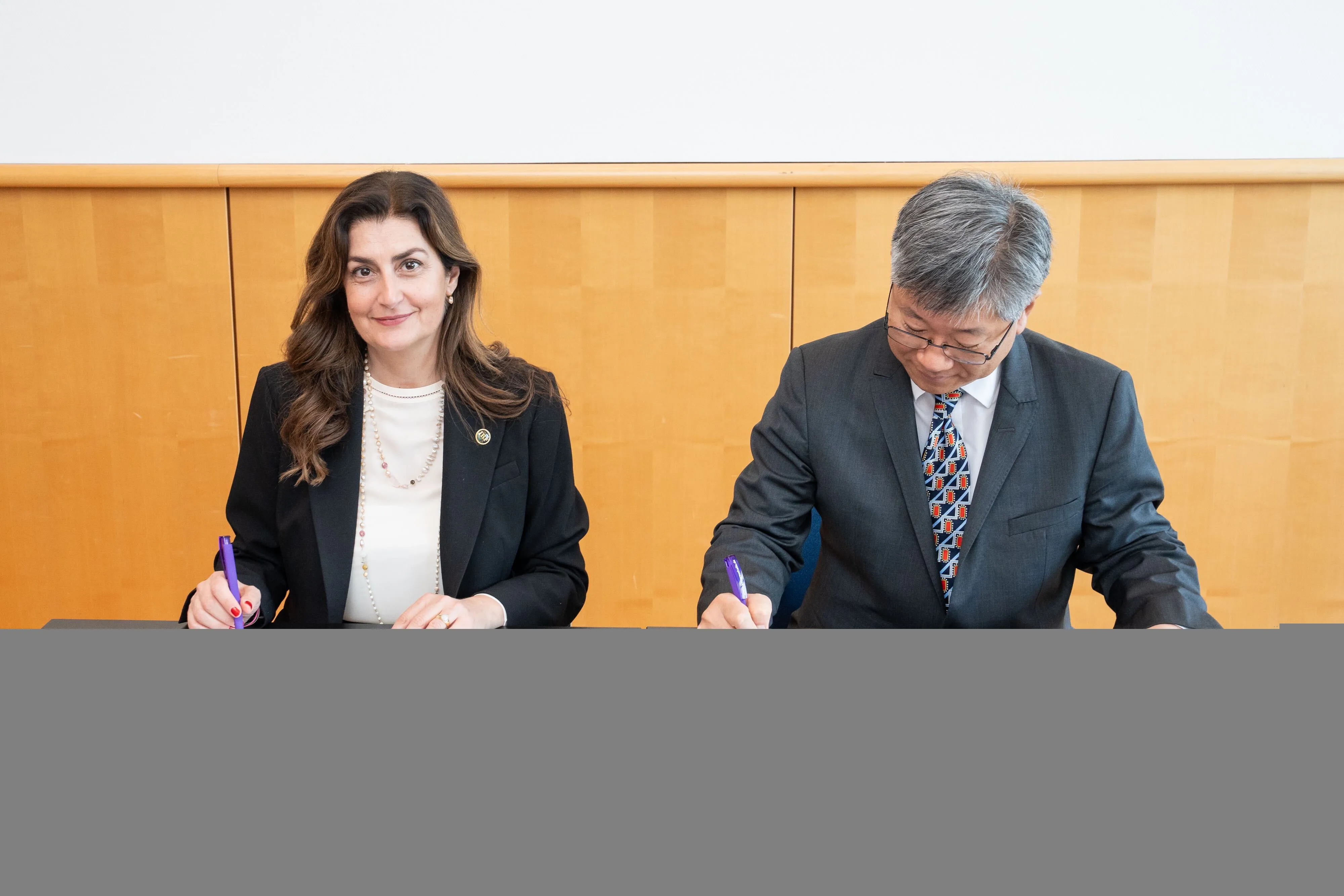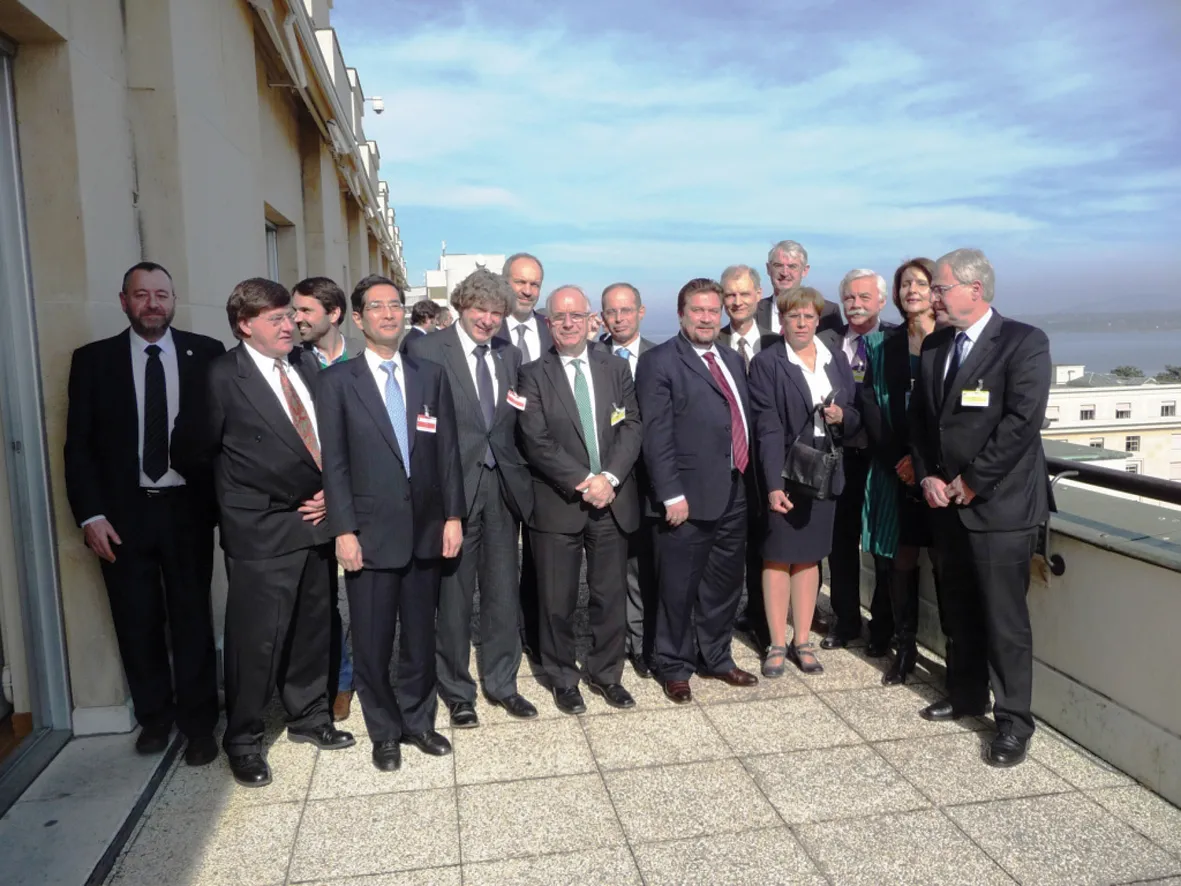A three-year programme has been agreed intended to improve the collection and use of traffic crash data. This landmark agreement forms part of the joint effort for UN’s Decade of Action for Road Safety. The partnership which will focus on the improvement of road safety data and its analysis was agreed between the Fédération Internationale de l’Automobile (FIA) and the International Transport Forum (ITF). FIA President Jean Todt signed the agreement together with the ITF Secretary-General José Viegas at an
May 22, 2014
Read time: 3 mins
A three-year programme has been agreed intended to improve the collection and use of traffic crash data. This landmark agreement forms part of the joint effort for UN’s 3439 Decade of Action for Road Safety. The partnership which will focus on the improvement of road safety data and its analysis was agreed between the 7115 Fédération Internationale de l’Automobile (FIA) and the 1102 International Transport Forum (ITF). FIA President Jean Todt signed the agreement together with the ITF Secretary-General José Viegas at an official ceremony at the ITF’s Annual Summit of Transport Ministers in Leipzig, Germany.
The initiative aims to support the3262 United Nations Decade of Action for Road Safety in its goal of significantly reducing traffic-related deaths and injuries by 2020. Around 1.3 million people die in road crashes every year and around 50 million are seriously injured. The global death toll from traffic is expected to rise to 2 million annually with a further 80 million serious injuries by 2020 unless action is taken.
The co-operation will focus on improving data collection, the analysis of which underpins road safety policy decisions. Welcoming the new partnership, FIA President Jean Todt said, “Together with the ITF we have agreed to work on the development of universal road traffic safety indicators which can be of great help to our members when addressing national road safety problems. The expertise which the ITF has acquired in the area of road safety data collection and analysis will allow us to better evaluate crash trends, improve the analysis of risk exposure and design more effective road safety policies.”
“Good road safety data is critical for any road safety research, policy and crash prevention activities,” said ITF Secretary-General José Viegas, praising FIA’s strong support and commitment. “The lack of road safety data globally creates a significant difficulty in assessing the specific road safety issues, evaluating the economic impact of road traffic deaths and injuries, identifying the optimum interventions and monitoring the impact of countermeasures.”
Among other road safety activities, the ITF, through its International Traffic Safety Data and Analysis Group (3444 IRTAD), has worked since 2008 to organise twinning between interested countries to improve the collection and analysis of road safety data. This has brought together countries such as Argentina/Spain, Cambodia/Netherlands and Jamaica/UK. The successful twinning between Spain and Argentina spawned the IberoAmerican Road Safety Observatory (OISEVI), a regional road safety collaboration that brings together 22 countries. The ITF also publishes the IRTAD Road Safety Annual Report, a performance review, and manages the IRTAD road safety database, with data from 32 countries.
The FIA Action for Road Safety Campaign was launched in May 2011 to support the UN Decade of Action for Road Safety. The campaign has involved advocacy at the highest levels to push leaders to commit to road safety both nationally and globally. It has also included supporting action by the 236 FIA Member Clubs in 139 countries worldwide to educate and advocate for safer roads, vehicles and behaviour on the ground. So far, 90 road safety projects in over 50 countries have been funded by the FIA Road Safety Grant Programme And the FIA has also launched worldwide road safety campaigns and programs, either alone or with partners, both institutional and private. For example, together with720 Michelin, FIA has promoted 10 Golden Rules for Road Safety worldwide.
The initiative aims to support the
The co-operation will focus on improving data collection, the analysis of which underpins road safety policy decisions. Welcoming the new partnership, FIA President Jean Todt said, “Together with the ITF we have agreed to work on the development of universal road traffic safety indicators which can be of great help to our members when addressing national road safety problems. The expertise which the ITF has acquired in the area of road safety data collection and analysis will allow us to better evaluate crash trends, improve the analysis of risk exposure and design more effective road safety policies.”
“Good road safety data is critical for any road safety research, policy and crash prevention activities,” said ITF Secretary-General José Viegas, praising FIA’s strong support and commitment. “The lack of road safety data globally creates a significant difficulty in assessing the specific road safety issues, evaluating the economic impact of road traffic deaths and injuries, identifying the optimum interventions and monitoring the impact of countermeasures.”
Among other road safety activities, the ITF, through its International Traffic Safety Data and Analysis Group (
The FIA Action for Road Safety Campaign was launched in May 2011 to support the UN Decade of Action for Road Safety. The campaign has involved advocacy at the highest levels to push leaders to commit to road safety both nationally and globally. It has also included supporting action by the 236 FIA Member Clubs in 139 countries worldwide to educate and advocate for safer roads, vehicles and behaviour on the ground. So far, 90 road safety projects in over 50 countries have been funded by the FIA Road Safety Grant Programme And the FIA has also launched worldwide road safety campaigns and programs, either alone or with partners, both institutional and private. For example, together with








